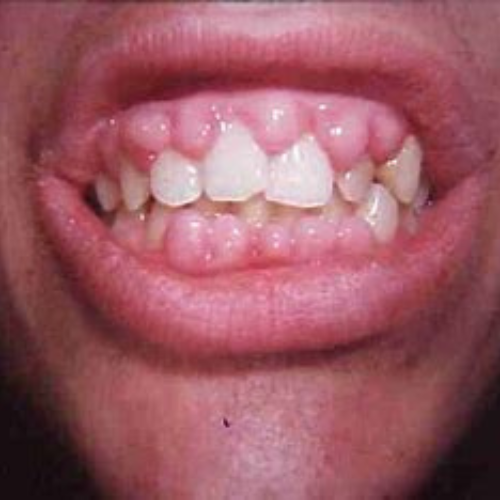Introduction

Gingivitis symptoms can often go unnoticed, leading to serious oral health issues if left untreated. Understanding these symptoms is crucial for maintaining optimal gum health and preventing more severe conditions. In this article, we’ll delve into the various signs of gingivitis, provide answers to frequently asked questions, and offer effective measures for managing and preventing this common dental problem.
Gingivitis Symptoms Explained
Gingivitis symptoms manifest in several ways, indicating inflammation and potential infection of the gums. Recognizing these signs early can prevent the progression of gingivitis into more severe periodontal diseases.
Bleeding Gums
One of the primary indicators of gingivitis is bleeding gums, especially during brushing or flossing. This occurs due to the buildup of plaque along the gumline, leading to irritation and inflammation.
Swollen or Tender Gums
Gums that appear swollen or feel tender to the touch are common symptoms of gingivitis. The inflammation caused by bacterial infection can make the gums sensitive and painful.
Receding Gums
Gingivitis can cause the gums to recede or pull away from the teeth, exposing the roots. This can lead to increased tooth sensitivity and vulnerability to decay.
Persistent Bad Breath
Chronic bad breath, or halitosis, is often associated with gingivitis due to the presence of bacteria in the mouth. Proper oral hygiene can help alleviate this symptom.
Changes in Gum Color
Healthy gums should have a pinkish hue, but gingivitis can cause them to appear red, dusky, or purplish in color. Any changes in gum color should be evaluated by a dental professional.
Effective Measures for Managing Gingivitis
Maintain Good Oral Hygiene
Brushing twice daily with fluoride toothpaste and flossing regularly are essential for removing plaque and preventing gingivitis.
Schedule Regular Dental Checkups
Routine dental visits allow your dentist to monitor your oral health, perform professional cleanings, and detect early signs of gingivitis.
Quit Smoking
Smoking can exacerbate gum disease and hinder the healing process. Quitting smoking can significantly improve gum health and reduce the risk of gingivitis.
Follow a Balanced Diet
A diet rich in fruits, vegetables, and lean proteins supports overall oral health and helps prevent gum disease.
Manage Stress
Stress can weaken the immune system and increase the risk of gingivitis. Practicing stress-reduction techniques like meditation or yoga can benefit oral health.
FAQs on Gingivitis Symptoms
Q.What Causes Gingivitis?
Gingivitis is primarily caused by poor oral hygiene practices that lead to the accumulation of plaque and tartar along the gumline. Other factors such as smoking, hormonal changes, and certain medications can also contribute to its development.
Q.Can Gingivitis Be Reversed?
Yes, gingivitis can be reversed with proper oral care and regular dental cleanings. By brushing and flossing daily, along with professional cleanings, the early stages of gingivitis can be effectively treated and reversed.
Q.Are Gingivitis Symptoms Always Painful?
Not necessarily. While some individuals may experience pain or discomfort, gingivitis symptoms can vary in severity. It’s essential to pay attention to subtle changes in gum health, even if they aren’t accompanied by pain.
Q.How Often Should I Visit the Dentist if I Suspect Gingivitis?
If you suspect you have gingivitis or notice any symptoms, it’s recommended to schedule a dental appointment promptly. Your dentist can assess your oral health, provide treatment recommendations, and help prevent the progression of gingivitis.
Q.Can Gingivitis Lead to Tooth Loss?
If left untreated, gingivitis can progress to more severe forms of periodontal disease, eventually leading to tooth loss. However, early detection and intervention can prevent this outcome.
Q.Are Home Remedies Effective for Treating Gingivitis?
While certain home remedies like saltwater rinses or herbal mouthwashes may provide temporary relief, they are not sufficient for treating gingivitis. Professional dental care and proper oral hygiene are essential for managing and preventing gingivitis.
Conclusion
Understanding the signs of gingivitis is essential for maintaining optimal oral health. By recognizing symptoms early, seeking prompt treatment, and adopting healthy oral hygiene habits, individuals can effectively manage and prevent gingivitis, ensuring a lifetime of healthy smiles.

